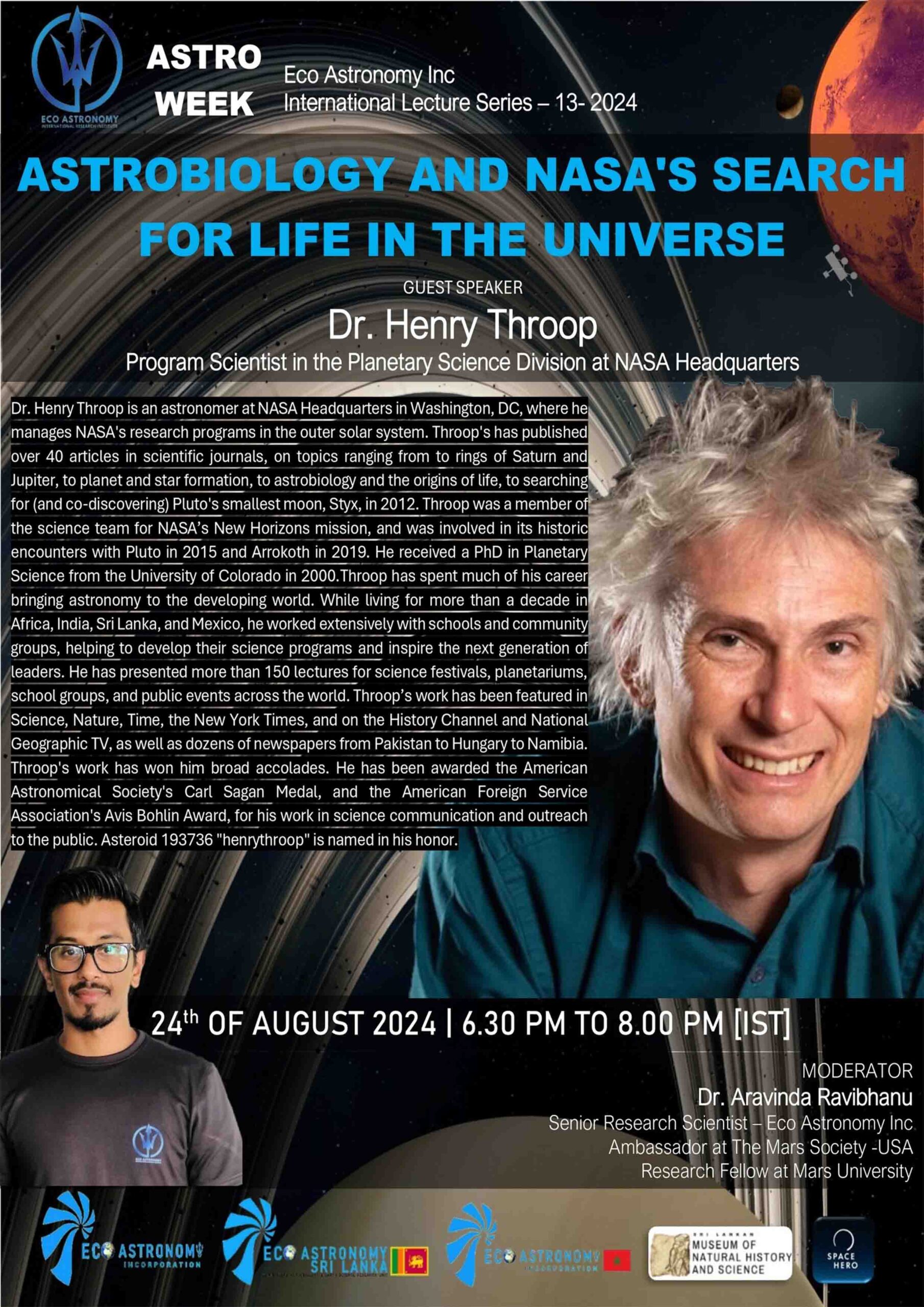ASTROBIOLOGY AND NASA’S SEARCH FOR LIFE IN THE UNIVERSE

For thousands of years, people on Earth have been asking, “Are we alone?” For much of the timeline of humanity, we have been unable to answer that question. But in the last decades, scientists have finally been able to begin in earnest the search for and study of life in the universe. How did life form on Earth? Do planets like Earth exist elsewhere? Could life exist on Mars, or the moons of Jupiter? Would distant life have the same carbon-based chemistry and use liquid water like we do, or could it be very different? And if we found evidence for life in distant solar systems, how would we even recognize it?
This talk will give an introduction to the field of astrobiology, including the search for distant life and distant planets, a discussion of cosmic chemistry, and the search for our own origins on Earth. It will discuss the best places in our solar system for NASA to search for the signs of life today, including Europa and Enceladus, where warm oceans are hidden below thick layers of ice. Finally, it will finish with an update on the latest findings from NASA’s Perseverance Mars rover and other missions as they explore Mars, looking for clues to its ancient habitability.
Guest Speaker : Dr. Henry Throop [ Program Scientist in the Planetary Science Division at NASA Headquarters.
Dr. Henry Throop is an astronomer at NASA Headquarters in Washington, DC, where he manages NASA’s research programs in the outer solar system. Throop has published over 40 articles in scientific journals, on topics ranging from to rings of Saturn and Jupiter, to planet and star formation, to astrobiology and the origins of life, to searching for (and co-discovering) Pluto’s smallest moon, Styx, in 2012. Throop was a member of the science team for NASA’s New Horizons mission, and was involved in its historic encounters with Pluto in 2015 and Arrokoth in 2019. He received a PhD in Planetary Science from the University of Colorado in 2000.
Throop has spent much of his career bringing astronomy to the developing world. While living for more than a decade in Africa, India, Sri Lanka, and Mexico, he worked extensively with schools and community groups, helping to develop their science programs and inspire the next generation of leaders. He has presented more than 150 lectures for science festivals, planetariums, school groups, and public events across the world. Throop’s work has been featured in Science, Nature, Time, the New York Times, and on the History Channel and National Geographic TV, as well as dozens of newspapers from Pakistan to Hungary to Namibia.
Throop’s work has won him broad accolades. He has been awarded the American Astronomical Society’s Carl Sagan Medal, and the American Foreign Service Association’s Avis Bohlin Award, for his work in science communication and outreach to the public. Asteroid 193736 “henrythroop” is named in his honor.
MODERATOR : Dr. Aravinda Ravibhanu | Ambassador at Beijing Forestry University International College | China | Ambassador at The Mars Society -USA | Research Fellow at The Mars University -USA
Next post
ASTROBIOLOGY : BIOMOLECULES AND LIFE ON EARTH AND IN ICY MOONs, COMETS AND ASTEROIDS
30/09/2024
